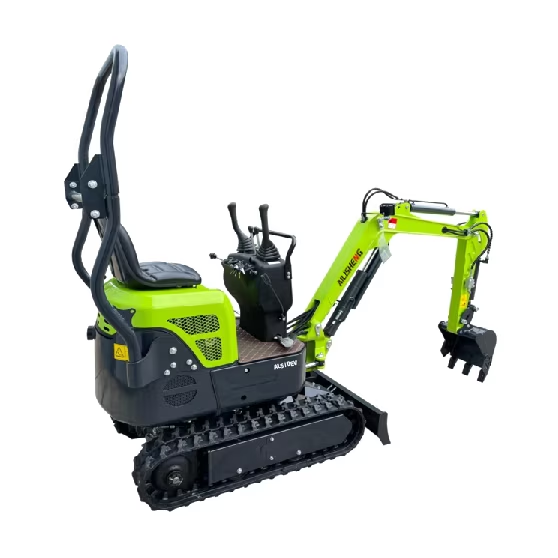Electric mini diggers are becoming increasingly popular in the construction industry as a more environmentally friendly alternative to traditional diesel-powered equipment. But just how eco-friendly are these electric machines, and what kind of impact do they have on the environment?
One of the primary benefits of electric mini diggers is their reduced carbon footprint compared to diesel-powered machines. Electric diggers produce zero emissions during operation, making them a cleaner option for construction projects in urban areas or enclosed spaces where air quality is a concern. This can help to lower overall greenhouse gas emissions and contribute to a healthier environment for both workers and nearby residents.
Lower Noise Pollution
Another environmental advantage of electric mini diggers is their lower noise levels compared to diesel machines. The electric motors in these diggers produce much less noise pollution, making them a more neighbor-friendly option for construction projects in residential areas or areas with strict noise regulations. This can help to reduce disturbances for local communities and create a more pleasant working environment for construction crews.
Potential for Energy Efficiency
In addition to their lower emissions and noise levels, electric mini digger also have the potential to be more energy-efficient than diesel machines. By utilizing electricity as a power source, these diggers can be charged using renewable energy sources such as solar or wind power, further reducing their environmental impact. This can help to lower overall energy consumption and decrease reliance on fossil fuels, contributing to a more sustainable construction industry.
Lifecycle Impact and Battery Concerns
Despite these environmental advantages, it is important to consider the full lifecycle impact of electric mini diggers. While they may produce fewer emissions during operation, the manufacturing and disposal of these machines can still have environmental consequences. The production of electric batteries, in particular, can be resource-intensive and can contribute to issues such as deforestation and water pollution. Additionally, properly recycling and disposing of these batteries at the end of their life cycle is crucial to minimizing their environmental impact.
Energy Source Considerations
Another consideration is the energy source used to charge electric mini diggers. While renewable energy sources are an ideal option for minimizing emissions, the use of electricity generated from fossil fuels can still contribute to greenhouse gas emissions and other environmental issues. As the construction industry continues to shift towards more sustainable practices, it will be important for companies to prioritize the use of clean energy sources for charging electric equipment.
Conclusion
Overall, electric mini diggers have the potential to offer significant environmental benefits compared to traditional diesel machines. Their lower emissions, noise levels, and energy efficiency make them a more sustainable option for construction projects. However, it is important for companies to consider the full lifecycle impact of these machines and take steps to minimize their environmental footprint through responsible manufacturing, charging, and disposal practices. By making informed decisions and adopting sustainable practices, the construction industry can continue to reduce its impact on the environment and move towards a more eco-friendly future.
